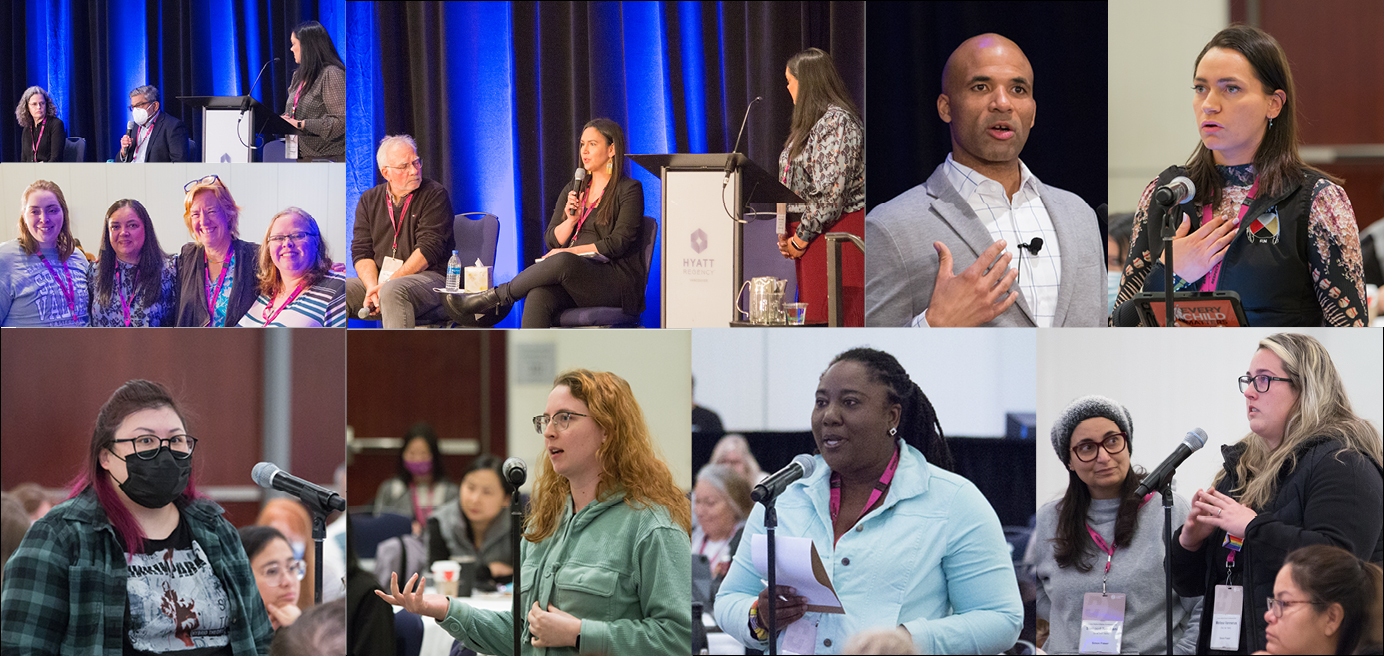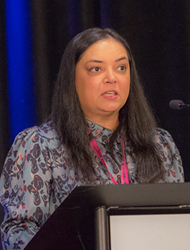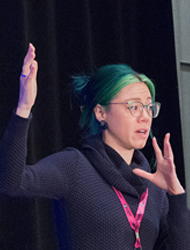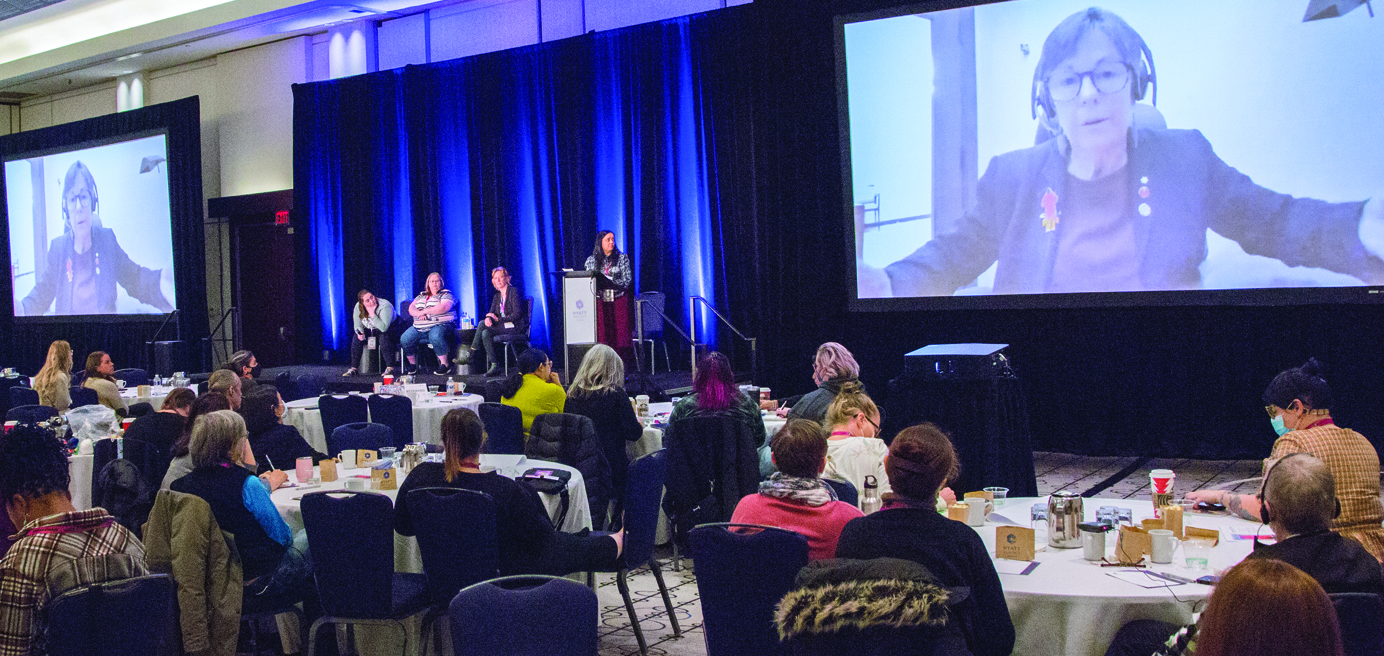 Cultivating an Ethic of Care
Cultivating an Ethic of Care

"Nurses care for all.” These four words express the ethic that is at the heart of our profession. The statement is also an ideal that drives so much of our union activism. For we know we are unable to care for all, because there aren’t enough of us, or – more critically – because those who are often most in need of care are confronted with systemic barriers which deny them access to that care.
This year’s BCNU Human Rights and Equity Conference was an opportunity for union members to gather in-person to listen and speak to each other about in the injustices that persist in our health-care system and in society at large – and to explore the idea of “justice” itself that could help make sense of the world in which we find ourselves.
The Nov. 30 – Dec. 1 event was held in Vancouver on the traditional, ancestral and unsurrendered lands of the Musqueam, Squamish and Tsleil-Waututh Peoples and Nations. Throughout the two days, there were presentations, film screenings, dialogue and discussion on the many meanings of justice and how health-care workers might reflect on these meanings in our life and work.
BCNU President Aman Grewal welcomed delegates and began the conference with a solemn acknowledgement of one of Canada’s most pressing human rights issues: the gross over-representation of Indigenous women in Canada’s federal correctional system.
She cited new data released last December by the Office of the Correctional Investigator of Canada showing that the proportion of incarcerated Indigenous women has continued to steadily increase, and now nears 50 percent of all federally-sentenced women. And in the last 10 years, the overall Indigenous inmate population has increased by 18 percent, while the non-Indigenous incarcerated population has decreased by 28 percent over the same period.
The investigator also reported that incarcerated Indigenous women are at greater risk of being subject to solitary confinement and are more often subject to repeated and extended bouts of segregation than other federally-sentenced women.
Grewal said these grim statistics must be considered within the context of Canada’s colonial history. Experiences of racism, sexism, and colonialism continue to increase Indigenous women’s risk of incarceration, she said, and this has cumulatively and negatively impacted their health.

“As nurses and health-care workers we know something about the impact of colonialism, racism, sexism, and other forms of systemic discrimination on the health and well-being of populations,” she remarked. “We know it from lived experience, from what our colleagues tell us, or from what we see and hear in our workplaces. And we know it from what we read in the In Plain Sight report on Indigenous-specific racism in health care, which told a sadly familiar story of how Indigenous patients and nurses and health-care workers experience our institutions of healing as unwelcoming and often hostile to their presence.”
Grewal argued that the In Plain Sight report confirms that, when faced with racism, too many of us don’t even see it, don’t pay attention to it, see it and don’t know what to do, or are on the receiving end of it and suffer in silence.
“It’s no wonder then, that the plight of incarcerated Indigenous women remains largely hidden from us, obscured by systemic injustice and colonial mindsets and the four walls of a prison,” she said.
The investigator also reported that incarcerated Indigenous women are at greater risk of being subject to solitary confinement and are more often subject to repeated and extended bouts of segregation than other federally-sentenced women.
Grewal said these grim statistics must be considered within the context of Canada’s colonial history. Experiences of racism, sexism, and colonialism continue to increase Indigenous women’s risk of incarceration, she said, and this has cumulatively and negatively impacted their health.
The conference’s first presenter, Simon Fraser University philosopher Alex King, helped set the tone for the next two days by asking participants what justice means to them, and to consider the many ways “justice” is conceived beyond the particular ethical frameworks that govern common understandings of the term.
She suggested that notions of care and need are lacking in mainstream discussions about justice, and that recriminative justice based on punishment – such as that experienced by incarcerated Indigenous women – has marginalized many other forms of justice, such as restorative or Indigenous justice.
King said that in policy and law, the focus on the rational, autonomous individual underpins common understandings of justice, and that this perspective does not fully acknowledge the ways people are connected to their support networks. She argued that an integrative justice model would make room for an ethic of care that is not based primarily on individual autonomy, but rather on need.
It’s no wonder that the plight of incarcerated Indigenous women remains largely hidden from us.
“There is a tension between ‘justice’ and ‘care,’ but these ideas are not necessarily at odds – integrative justice combines them,” she said. “When we talk about equity-oriented health care – that’s an ethic of care.”
King also opened day two of the conference by leading participants in an exploration of the concepts of agency and alienation, and to consider how these notions interact with and are affected by social power. Members were asked about what parts of their work make them feel most powerless or, conversely, most empowered.
King drew on Marx’s theory of alienation to illustrate how, when nurses as workers are reduced to selling their labour power, they become “strangers” to themselves, and not only alienated from the product of their labour – that being the care they provide – but from their patients, co-workers and their community.
Participants shared their accounts of powerlessness within the current health-care system but agreed that meaningful relationships with other nurses and care givers help contribute to a healthier sense of agency. King suggested that alienation can be viewed as the enemy of agency, and many in the room argued that workers taking care of each other, whether through activism in their union or in daily interactions with employers, can lead to empowerment.
A major conference highlight was the screening of the award-winning 2019 Canadian documentary Conviction. The film envisions alternatives to prison through the eyes of women behind bars and those fighting on the front lines of the decarceration movement who are working to limit the role of prisons in society.
The film crew went inside two Nova Scotia prisons to collaborate with talented, articulate and brave women who candidly tell their stories and try to find their own solutions to society's shortcomings.
The women featured in the documentary speak to family abandonment, abuse, rape, and their experience of being sent right to jail instead of receiving any treatment that would help them cope and recover. They imagine what they would have needed in their lives to avoid incarceration as they paint, draw, photograph and film, envisioning a more ideal world and authoring their own narratives through art.
Following the screening, members had the opportunity to ask questions of Conviction co-director Ariella Pahlke, who was joined by Bianca Mercer and Tanya Bignell, both of whom participated in the film.

Mercer spent six months pregnant in prison. And like so many other incarcerated women, she was in on remand, unable to afford bail and awaiting trial. She was in her first trimester of pregnancy when she entered prison, and over the course of her incarceration she was in and out of solitary confinement and lock-down almost constantly, all the while losing weight and terrified about what would happen to her baby.
Mercer acknowledged that nurses are overworked, but asked conference attendees to always try to exercise empathy despite any red flags in a patient’s file around incarceration or substance use. Mercer, now a full-time mom to her daughter, is advocating for herself and working to help change people’s mindset towards incarceration and punishment.
Bignell was a caseworker for the Nova Scotia Department of Community Services when featured in the film. She retired in 2018, shortly after the film’s completion, and told the room about the inner conflict she endured in her role as a guard with a desire to truly help and advocate for prisoners. She said prisoners coming to a health-care facility “are embarrassed, being on public display and being escorted by guards” and that nurses and other workers need to ensure they are afforded confidentially and respect.
Pahlke, Bignell and Mercer were joined by Senator Kim Pate, a nationally renowned advocate who has spent nearly 40 years working in and around the legal and penal systems of Canada, with and on behalf of some of the most marginalized, victimized, criminalized and institutionalized — particularly imprisoned youth. She was Executive Director of the Canadian Association of Elizabeth Fry Societies for more than 20 years before her appointment to the Senate in 2016.
If we want to stem this tide, we need to invest in the community.
Pate, who is recorded in the film, asks prisoners to imagine how they could benefit from the estimated $100,000 spent annually to pay for their incarceration, money that could go toward a support system that would keep them out of jail.
The film elicited thoughtful and nuanced responses from BCNU members in the room. Many at the mic posed comments, asked questions and talked about the film’s impact. One nurse from St. Paul’s Hospital asked what nurses can do to make health-care facilities more inviting and supportive.
Pate thanked the nurses in attendance, and called on them to lean into their training when caring for someone who is in prison. “When you meet up with an incarcerated individual needing health care support, sit with them, connect with them and treat them as you would someone you love and care for,” she asked.
Other members at the mic argued that nursing schools must do a better job of teaching about systemic issues their patients may be facing, how best to support them, and ensuring nurses have the resources they need to ensure they don’t experience burn out from the human tragedy they face daily.
Pate said that individuals can help by encouraging communities to demand that elected officials provide resources, instead of cutting mental health services and ensnaring more marginalized individuals into a failing judicial and corrections system.
Pate returned to present on day two of the conference and shared more details on the work she is doing to effect legislative changes that move beyond simple equity measures that “decolonize” the corrections system – such as the hiring of Indigenous guards – to one of decarceration, that would see prisons as we currently know them abolished.
“If we want to stem this tide we need to invest in the community,” she said. “Prisons are not treatment centres, homeless shelters or places to go for people wanting to escape violence.” Pate’s “ounce of prevention is worth a pound of cure” recommendations were surely not lost on many of the nurses in attendance.
By the end of the event, more than 150 delegates had engaged in open dialogue and learned from each other in a welcoming space that honoured difference and reimagined commonalities – in and through solidarity with each other.

Look for more in-depth coverage of the BCNU Human Rights and Equity Conference in the Spring 2023 issue of Update Magazine.

